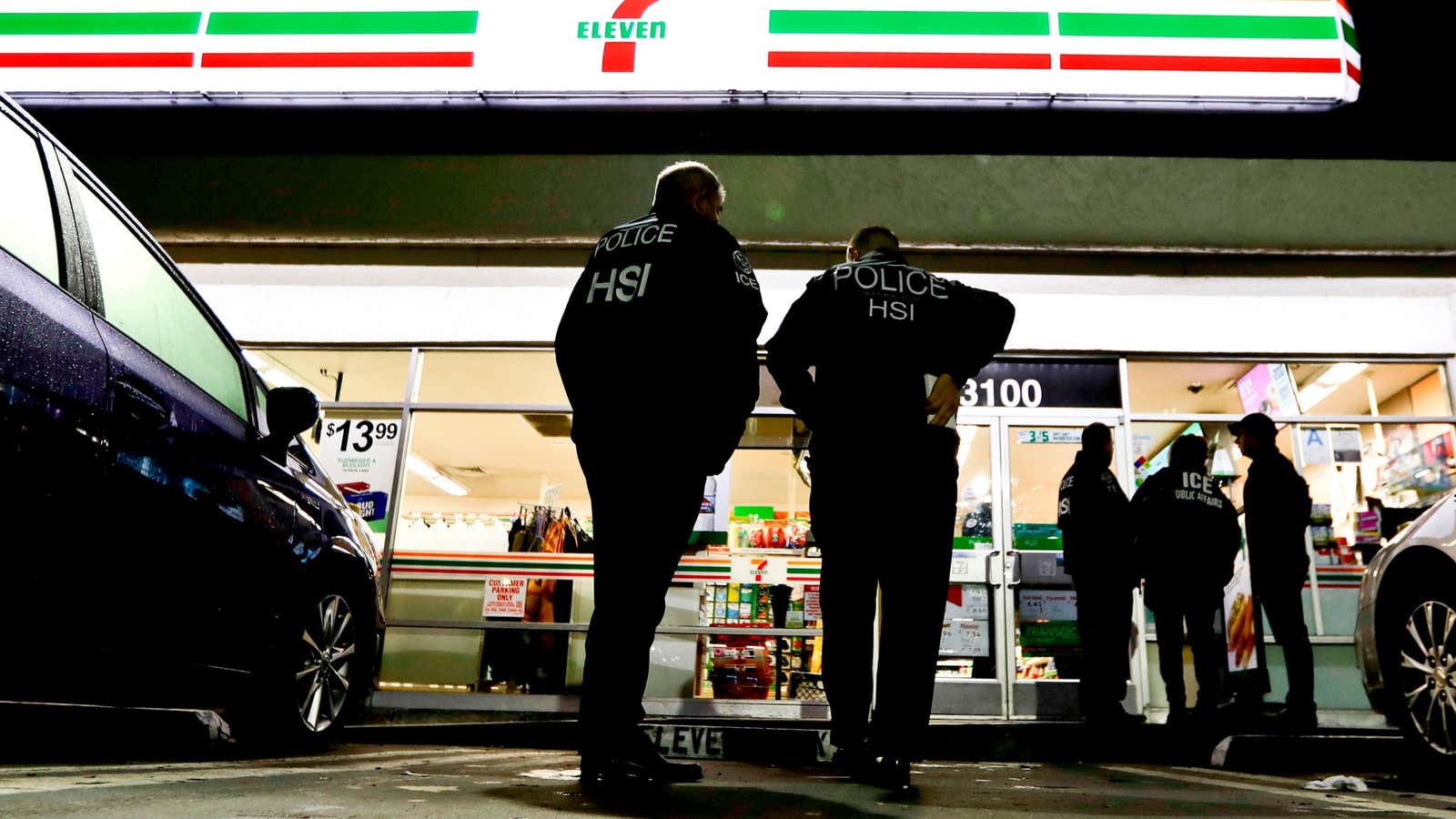Donald Trump held a public bashing session of California’s sanctuary policies on Wednesday.
The guests of honor were several elected officials from California, who, like Trump, oppose a state law that limits cooperation with federal authorities in the interest of protecting undocumented immigrants. During a live webcast of the roundtable event, Trump referred to the group as “a rebellion by patriotic citizens who want their families protected and their borders secured.”
Unfortunately for Trump, the California uprising is unlikely to succeed. While the number of jurisdictions rejecting California’s sanctuary rules has been growing, and now includes some populous areas like Orange and San Diego counties, those jurisdictions remain in the minority. Los Angeles County alone, for example, has more people than the dozen or so cities and counties represented at the meeting with Trump on Wednesday. And it’s LA and other big cities that hold the most sway on immigration arrests.
US Immigration and Customs Enforcement (ICE) has for years relied on local authorities to refer undocumented immigrants in their custody. Transfers from local jails and state prisons represent the bulk of ICE arrests. But in California, those types of arrests have fallen dramatically, according to data provided to Quartz by the Migration Policy Institute, a Washington D.C.-based think tank. As a result, California, the US state with the largest undocumented population in the country, has been making up a smaller share of ICE arrests nationally.
Trump has been unable to make up for California’s dwindling cooperation. Arrests made directly by ICE in the state rose only slightly during the first few months of his administration compared to the equivalent period in 2016, according to the MPI statistics. (The figures, which the group obtained through a Freedom of Information Act request, only cover Trump’s first 135 days in office; included in the California numbers are arrests made in the much smaller jurisdictions of Hawaii, Guam, and Saipan.)
Trump has been trying to ramp up at-large arrests, but his ability to do that is constrained by the Department of Homeland Security’s budget. Unless Congress increases it dramatically, ICE is unlikely to make big inroads in California, even with local help.
